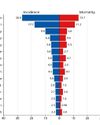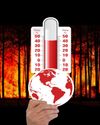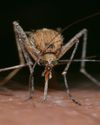
Oil spills are consumed by many kinds of wildlife, including fish and shellfish, as a result of widespread contamination. There is concern about physical and chemical toxicity since oil spills are associated with chemicals used in manufacturing and that sorbs from the environment.
Introduction: Oil is a vital source of energy around the world. It is transported from one location to another by ships at sea and through pipes. The pipes leaked due to various issues and the oil spread throughout the oceans. This is referred to as oil spill. Oil Pollution is a growing environmental issue that threatens both terrestrial and aquatic ecosystems. Oil spills endanger marine birds, mammals, fish and shellfish.
Marine oil spil can have a significant economic impact on coastal activities as well as have an impact on the overall health of the marine environment. According to the statistics 3.2 million tonnes of oil are released into the coastal environment each year from all sources. This type of oil is mixed with water affect the marine organisms in the water, most of the marine organisms take a long time to recover and some do not recover from these effects.
Causes and effects: Ultimately the effect of oil on the properties of water depends on the fat content of the oil. When hydrocarbons are in the marine environment they spread to the surface of the water layer. When waves carry the oil to coastal organisms then it harming to marine organisms such as invertebrates, mammals and birds. Fish, plankton and larvae are straight away subjected to grease toxity.
Esta historia es de la edición March-April 2023 de Scientific India.
Comience su prueba gratuita de Magzter GOLD de 7 días para acceder a miles de historias premium seleccionadas y a más de 9,000 revistas y periódicos.
Ya eres suscriptor ? Conectar
Esta historia es de la edición March-April 2023 de Scientific India.
Comience su prueba gratuita de Magzter GOLD de 7 días para acceder a miles de historias premium seleccionadas y a más de 9,000 revistas y periódicos.
Ya eres suscriptor? Conectar

Building world's 1st pyramid
In a preprint study published this summer, researchers proposed that ancient Egyptians built the world's first pyramid the 4,700-year-old Step Pyramid of Djoser, which sits on Egypt's Saqqara plateau using a \"modern hydraulic system\" powered by a long-gone branch of the Nile River.

Climate change arms the world, ovarian cancer pulls the trigger.It's time we disarm them both
Climate change, driven by human activities, leads to environmental changes such as rising temperatures, altered weather patterns, and increased pollution.

Climate Change Added 18 mph to Hurricane Wind Speeds over Past 5 Years
High ocean temperatures caused by global warming boosted maximum intensities for most storms between 2019 and 2023, as well as for every 2024 hurricane.

How Indian Vulture Decline Led to 500,000 Deaths in 5 Years
Once a common sight across India, vultures were abundant scavengers, often seen circling landfills in search of carcasses.

Understanding Monkeypox: Insights and Implications
Monkeypox, a viral zoonotic disease, has gained significant attention in recent years due to its re-emergence and sporadic outbreaks globally.

AI predicts that most of the world will see temperatures rise to 3°C much faster than previously expected
Three leading climate scientists have combined insights from 10 global climate models and, with the help of artificial intelligence (AI), conclude that regional warming thresholds are likely to be reached faster than previously estimated.

Infrared Radiation: A New Player In Mosquito Host-Seeking
The sound of mosquitoes is all around us when the sun sets and the air gets warm and sweltering.

Fish Oil May Benefit to Cure Alzheimer's, disorder: new findings
The benefits of fish and fish oil consumption are well-known in medical science as fish is considered a precious food resource that provides sufficient nutrition to humans.

A new class of antivirals could help prevent future pandemics
The arrival of Paxlovid in December 2021 marked another turning point in the COVID-19 pandemic an effective antiviral that has since successfully treated millions.

Turning carbon emissions into methane fuel
Chemists have developed a novel way to capture and convert carbon dioxide into methane, suggesting that future gas emissions could be converted into an alternative fuel using electricity from renewable sources. Carbon dioxide (CO2) is a greenhouse gas that accounts for a large part of Earth's warming climate, and is produced by power plants, factories and various forms of transportation.